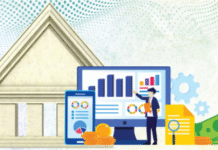
Protecting purchasing power of the left behind and financially insolvent people is the prime concern and for that the government should stabilise prices of basic necessities and improve employment opportunities, said economist Debapriya Bhattacharya.
“Many people, including lower income groups, middle class, informal sector ones, returnee migrants, the left behind, have lost purchasing power due to high price rise and there is a lack of employment opportunity for them,” he said.
For them, it is utmost crucial to deliver Sustainable Development Goals (SDGs) as it provides more importance to the development of the left behind rather than the high economic achievement indicators, he said.
Bhattacharya, convener of Citizen’s Platform for SDGs, Bangladesh and a distinguished fellow at the Centre for Policy Dialogue (CPD), proposed two policy supports to tackle the crisis.
One, from the macroeconomic perspective, is taking measures so that the taka does not depreciate for its effects on imported inflation alongside interest rate management so that loan pressure gets reduced for the low-income and left behind.
The other is to protect the purchasing power by lowering soaring prices by slashing tariffs on products of daily necessity.
He said the government should immediately reduce duties, tariffs and taxes to make essentials more affordable and provide access to basic commodities at “fair prices” by expanding open market sale (OMS) operations of the Trading Corporation of Bangladesh (TCB).
“The number of products of the TCB have to increase and this supply should be expanded to different areas outside Dhaka,” said Bhattacharya.
The government should expand public works, social protection programmes and food assistance and increase tax rebates for job creation. Public resources will need to be redirected for subsidy to protect prices of electricity, fuel, food and fertiliser, he said.
“Given the resource constraint, the government will need to use public money under ADP more efficiently and accelerate investment in the rural public health system and address education loss,” he added.
Bhattacharya was addressing a briefing and review session on a study on “What Impact will the Pandemic have in SDG Delivery in Bangladesh” organised by the Citizen’s Platform for SDGs at Brac Centre Inn yesterday.
Bhattacharya said the upcoming national budget of fiscal year 2022-23 should be designed in context to recent developments which threaten to raise vulnerabilities of the disadvantaged.
“Overall policy approach should be towards using the SDG as a framework for post-pandemic recovery by prioritising public expenditure on education and health in view of Covid losses. Additionally, the SDG tracker should be updated urgently,” he said.
The study pointed out that the Covid-19 pandemic had superimposed on preexisting disparities and affected almost all the SDG indicators.
It said the repercussions for the SDGs have been channelled to vulnerable groups, exposing them to a disproportionate burden and risking the core principle of the agenda of leaving no one behind.
Amongst all the SDG development targets related to the economy and society have been the most affected. Covid-19 had a more intensified impact on poverty, inequality and employment related areas, it said.
Education, child marriage and violence against women will continue to have an impact in the medium term.
According to the study, tracking mechanisms to capture the pandemic’s impacts on the SDGs were severely affected due to a dearth of data. There is hardly any up-to-date data to capture the impact of Covid-19 on the SDG targets.
Maleka Banu, general secretary of Bangladesh Mahila Parishad, stressed that the pandemic increased inequality, including that over gender, and a lack of good governance has further constrained addressing this issue.
Syeda Rizwana Hasan, chief executive, Bangladesh Environmental Lawyers Association, said Covid-19 has deprioritised environmental issues for the government. She said Bangladesh, as a climate vulnerable country, cannot afford this.
Ahmed Mushtaque Raza Chowdhury, core group member at the Citizen’s Platform for SDGs, Bangladesh, said after every catastrophe, countries can also use the learnings as an opportunity to implement reforms to address the weaknesses in the prevailing system.
“We also have to use the lessons of the current crisis to build forward better,” he said.
Professor Mustafizur Rahman, a distinguished fellow at the CPD, said social protection should be expanded adequately in urban and peri-urban areas.
“Lack of data and information for the urban poor is obstructing the government from reaching the people in need,” he said.
Reefat Bin Sattar, director for Programme Development and Quality, Save the Children in Bangladesh, said while fighting Covid-19, the health sector faced difficulties to deal with priorities such as maternal and child care.
He also stressed that being absent from school during the pandemic has adversely affected the mental health of children, so this required special attention.


 For all latest news, follow The Daily Star’s Google News channel.
For all latest news, follow The Daily Star’s Google News channel. 







